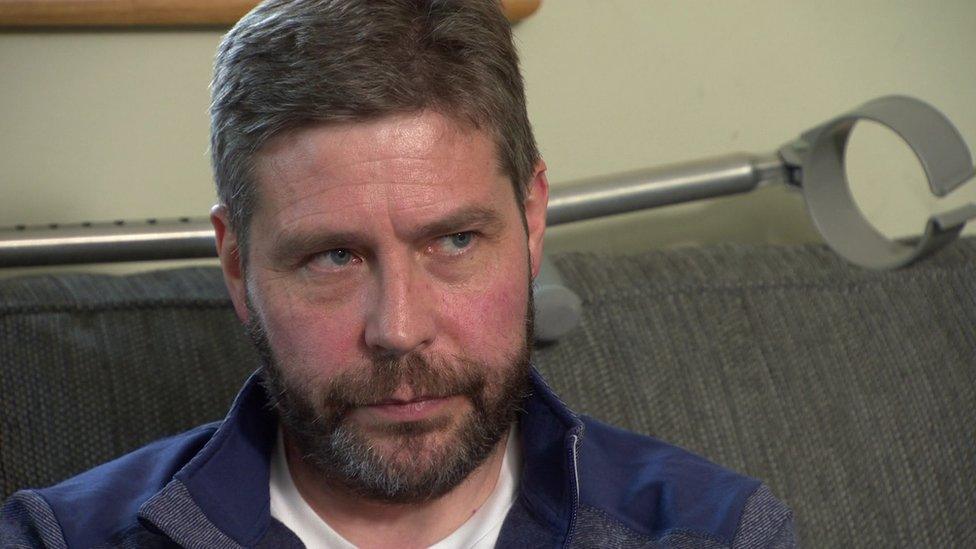Kevin Lunney trial: CCTV privacy issues raised by defence
- Published

Kevin Lunney was kidnapped and tortured in 2019
The public's right to privacy is not being considered when CCTV footage is used as evidence in court, the Kevin Lunney kidnap trial has been told.
Four men deny abducting and assaulting the Quinn Industrial Holdings executive who was kidnapped outside his County Fermanagh home in September 2019.
Defence lawyers have continued to argue against the admissibility of CCTV gathered from private operators.
They complained that the prosecution had "mischaracterised" their arguments.
One of the defence lawyers accused the prosecution of using tactics "characteristic of comedians and propagandists" to pour "scorn" on defence objections to privately-owned CCTV footage.
The men they are defending are 67-year-old Luke O'Reilly, from Mullahoran Lower, Kilcogy, County Cavan; 27-year-old Darren Redmond, from Caledon Road, East Wall, Dublin; 40-year-old Alan O'Brien, of Shelmalier Road, East Wall, Dublin and another 40-year-old man, known as YZ and who cannot be named for legal reasons.
All four are charged with falsely imprisoning Mr Lunney and intentionally causing him serious harm and they have each pleaded not guilty to the offences.
'Cloak of invisibility'
The trial is being heard at the Special Criminal Court in Dublin, and at a previous hearing on Thursday, prosecution lawyer Sean Guerin told the court criminals would never need to wear a balaclava again if prosecutors were prevented from using privately-owned CCTV footage.
In a Harry Potter reference, he alleged the defence was trying to give the accused Dumbledore's "cloak of invisibility".
But on Friday, defence lawyers for Mr O'Brien and the defendant YZ took exception to how their CCTV argument was being portrayed.
"This is a tactic characteristic of comedians and propagandists which is to mischaracterise the argument raised by the other side in order to pour scorn on it," Mr O'Brien's lawyer said.
He claimed the privacy rights of his client and the wider public had been breached by gardaí (Irish police) accessing CCTV footage from various locations between Dublin and Cavan on different dates.
He argued the evidence showed there were no procedures in place to safeguard privacy rights and told the court that if the CCTV footage was admitted in this trial, it would give a "green light to a system with no restraint and which is capable of infringing the rights of the population at large".
Consent
YZ's defence lawyer also claimed gardaí accessed CCTV with no scrutiny and no consideration of the constitutional and privacy rights of individuals, adding the only time civil rights were considered was when CCTV admissibility was challenged in a criminal case.
YZ's lawyer also challenged the prosecution's characterisation of the defence objections to CCTV evidence, saying: "We are asking them to prove the lawful provenance of the evidence, not seeking to make factories that make balaclavas redundant."
He added that just because CCTV operators had willingly handed footage over to gardaí, that did not make the sharing of the footage lawful.
CCTV owners, he said, do not own the personal, private data of individuals who are recorded going about their business by their cameras.
"Material which is personal data isn't within the gift of the Applegreen service station, or anyone else, to give out like that."
The trial was adjourned until next Thursday when a ruling on the admissibility of mobile phone and CCTV evidence is expected.